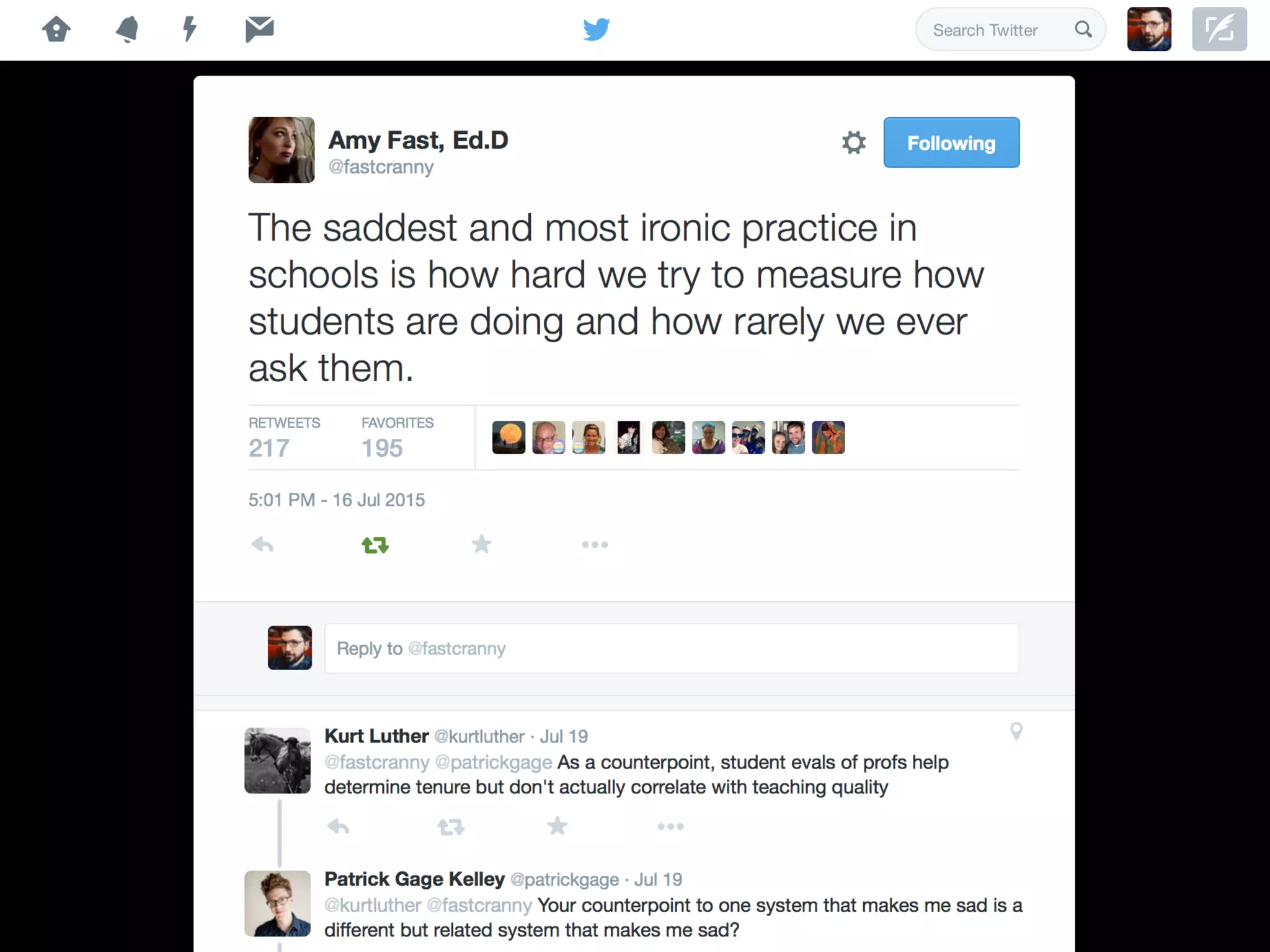The document discusses the principles of open pedagogy, emphasizing the importance of creating learning environments that empower students and foster collaboration. It critiques traditional educational tools and methodologies that promote compliance rather than genuine learning and argues for a shift towards more organic and meaningful learning experiences. The author calls for the re-evaluation of how courses are structured, advocating for a more open and participatory approach to education that values student engagement over rote compliance.
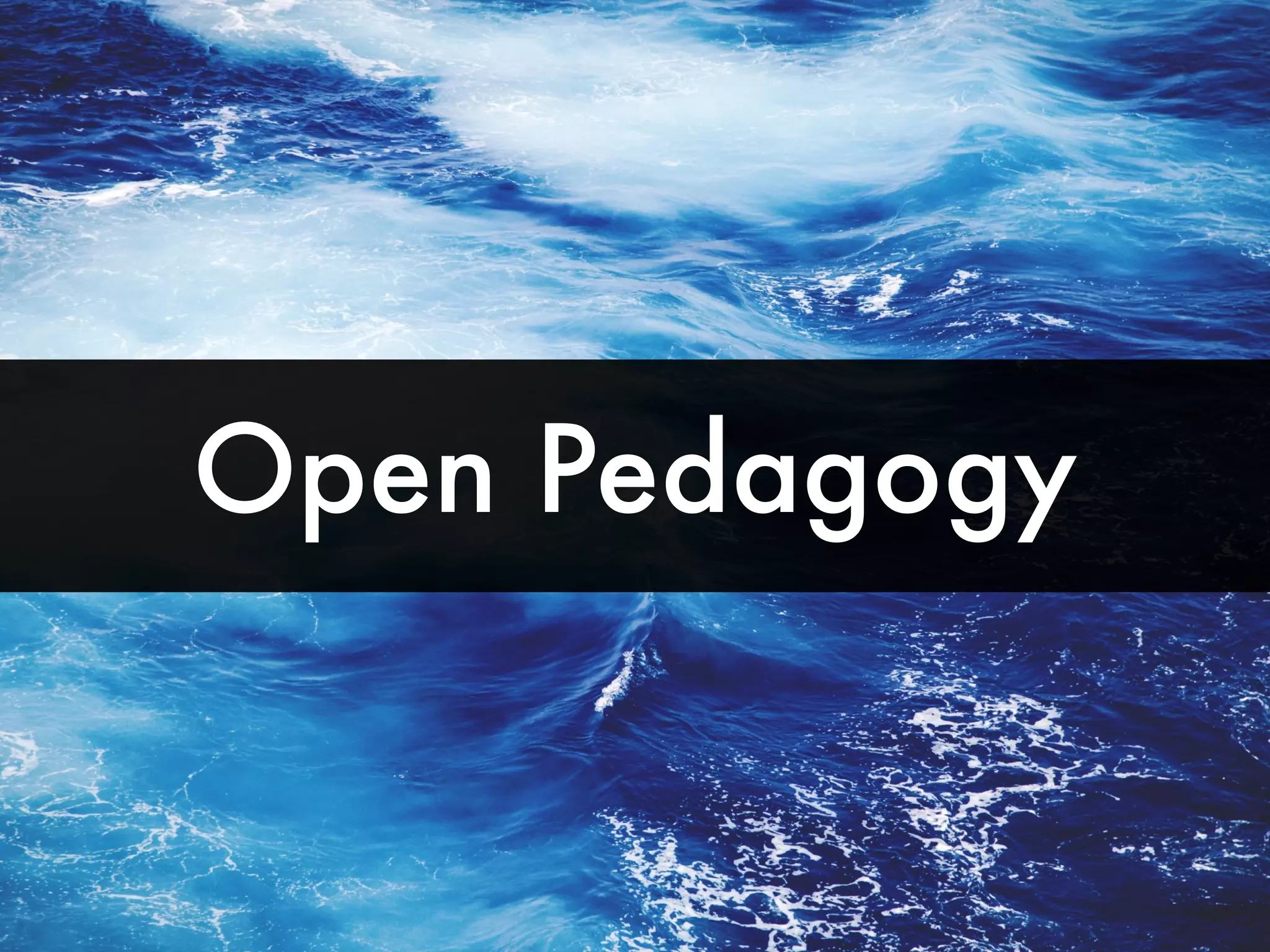
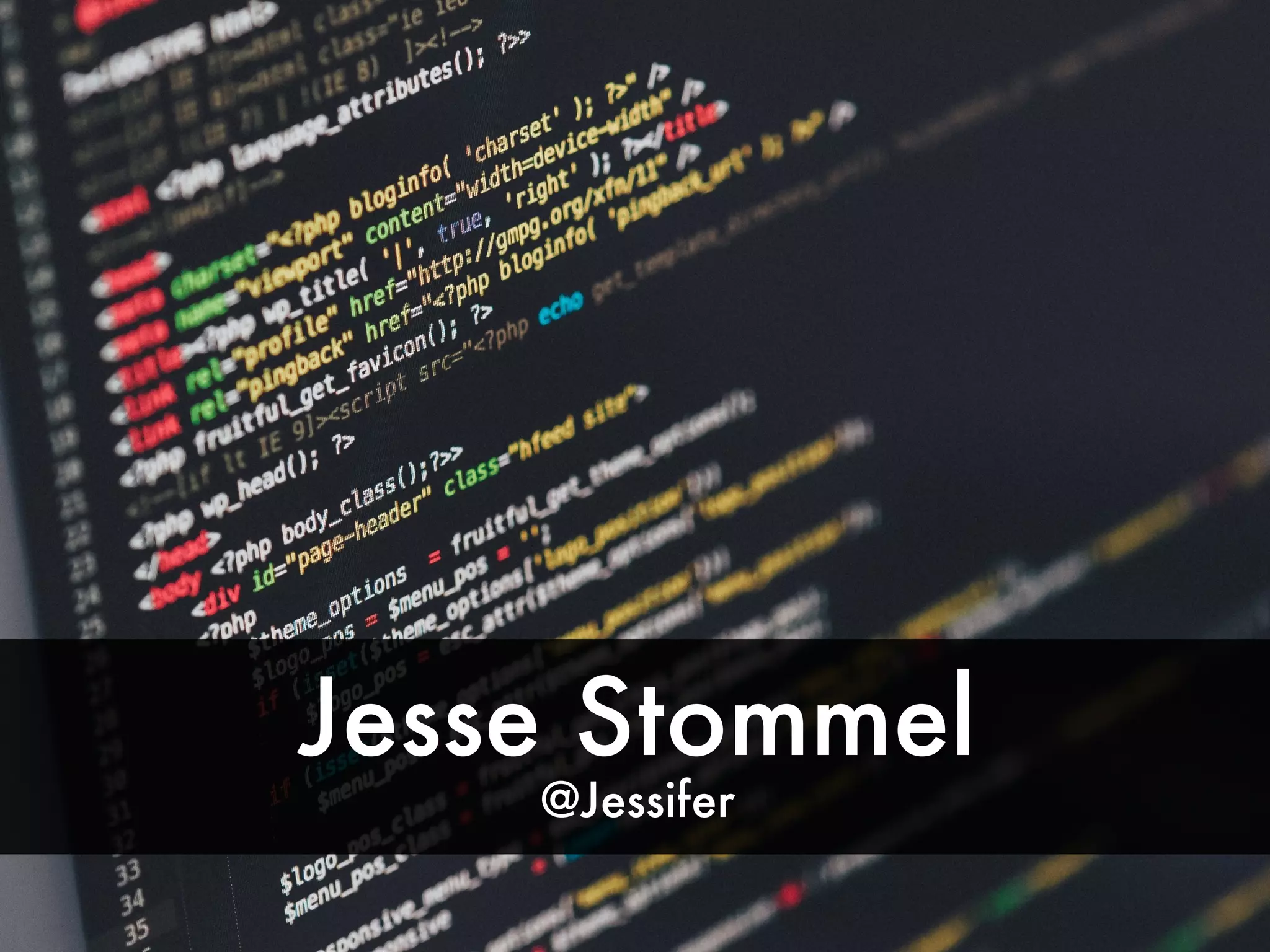
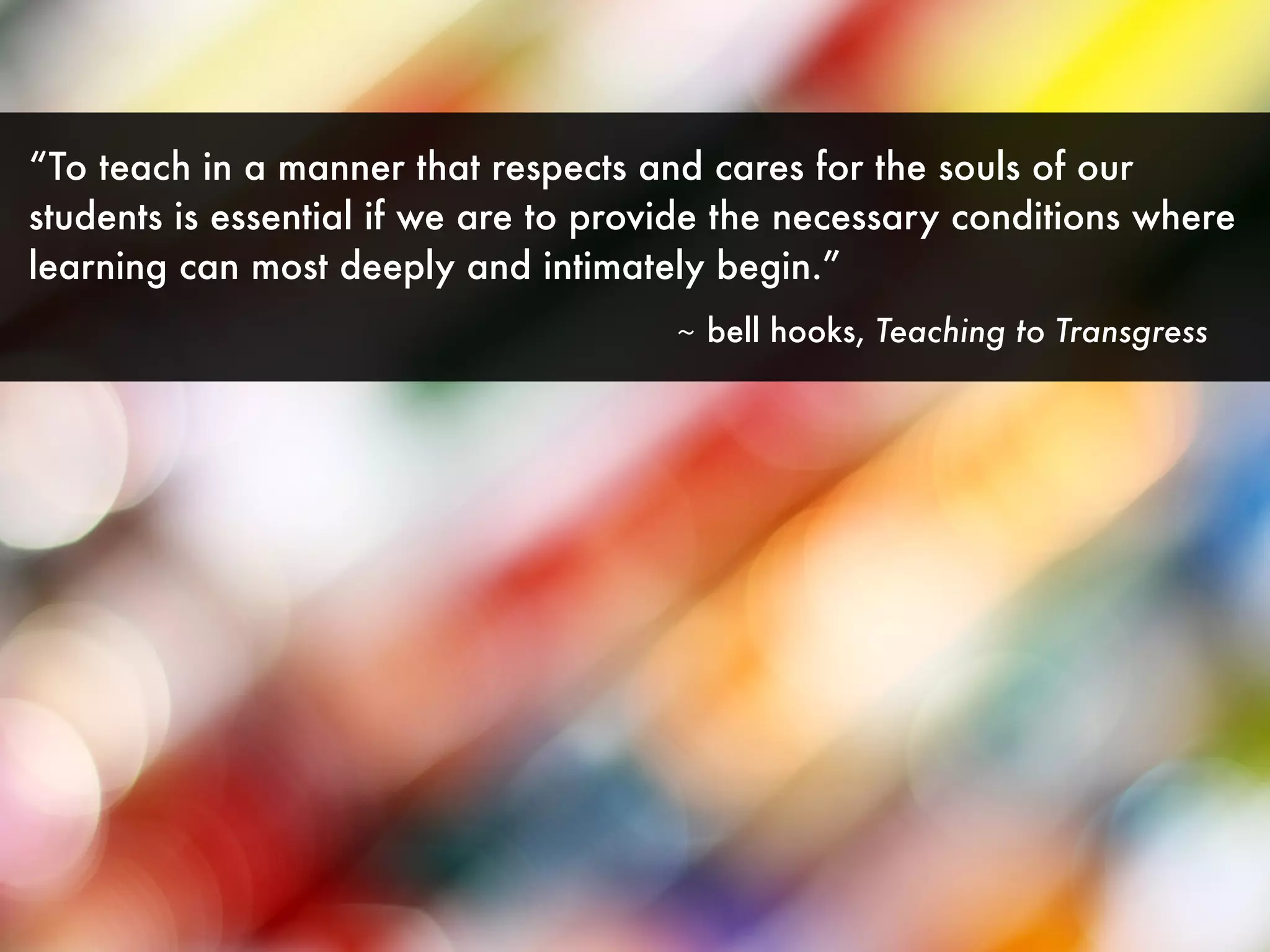
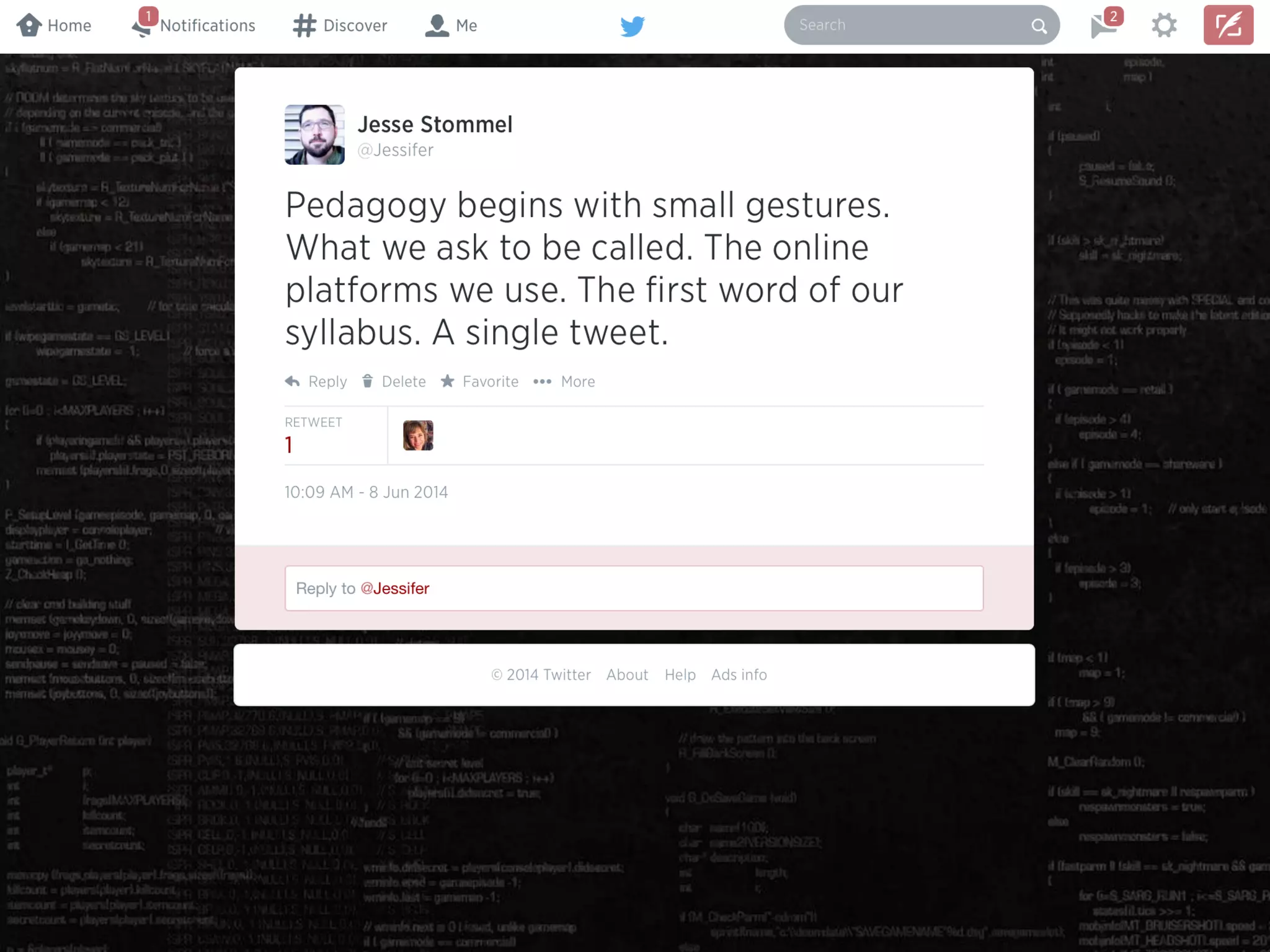
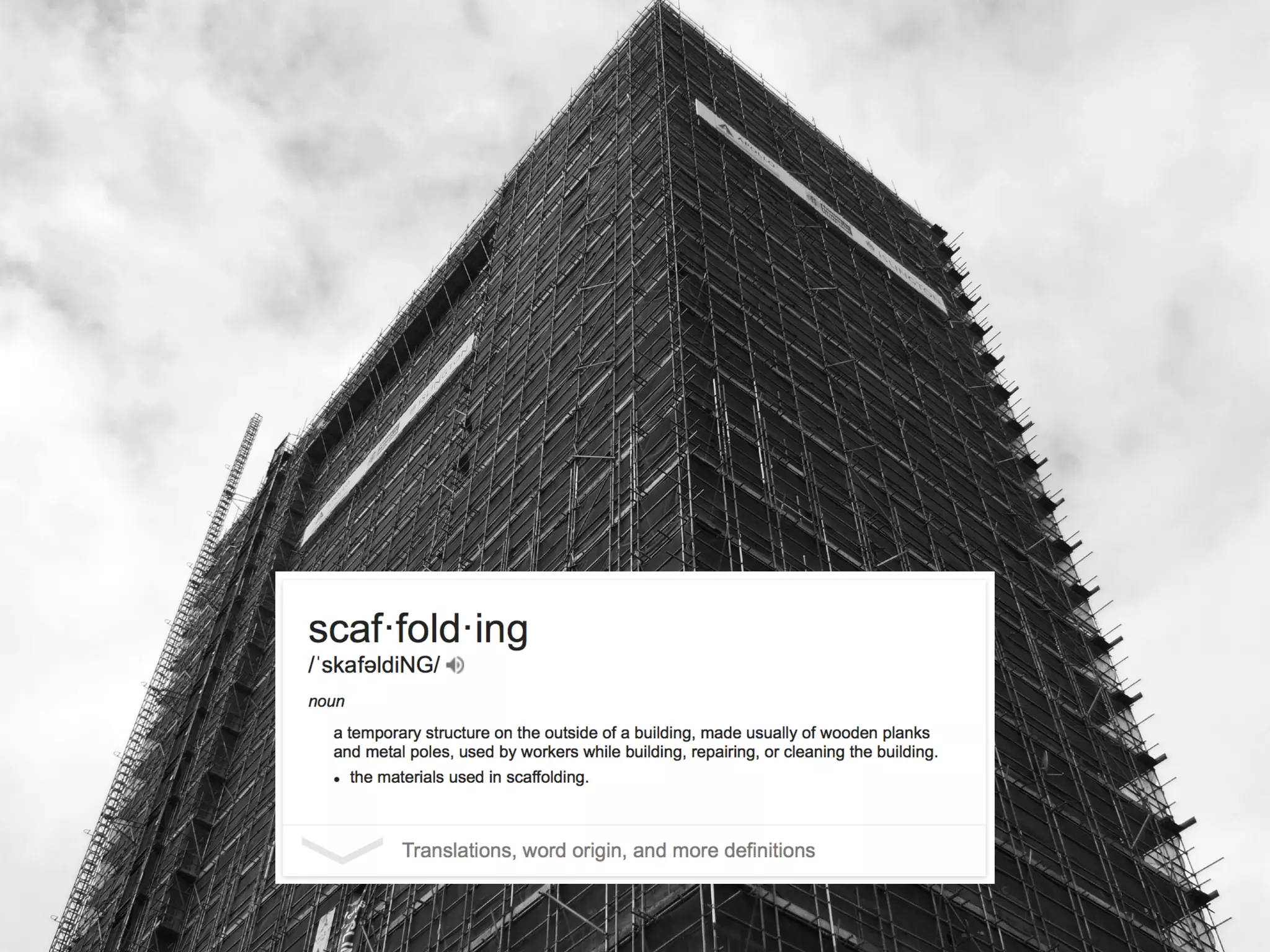

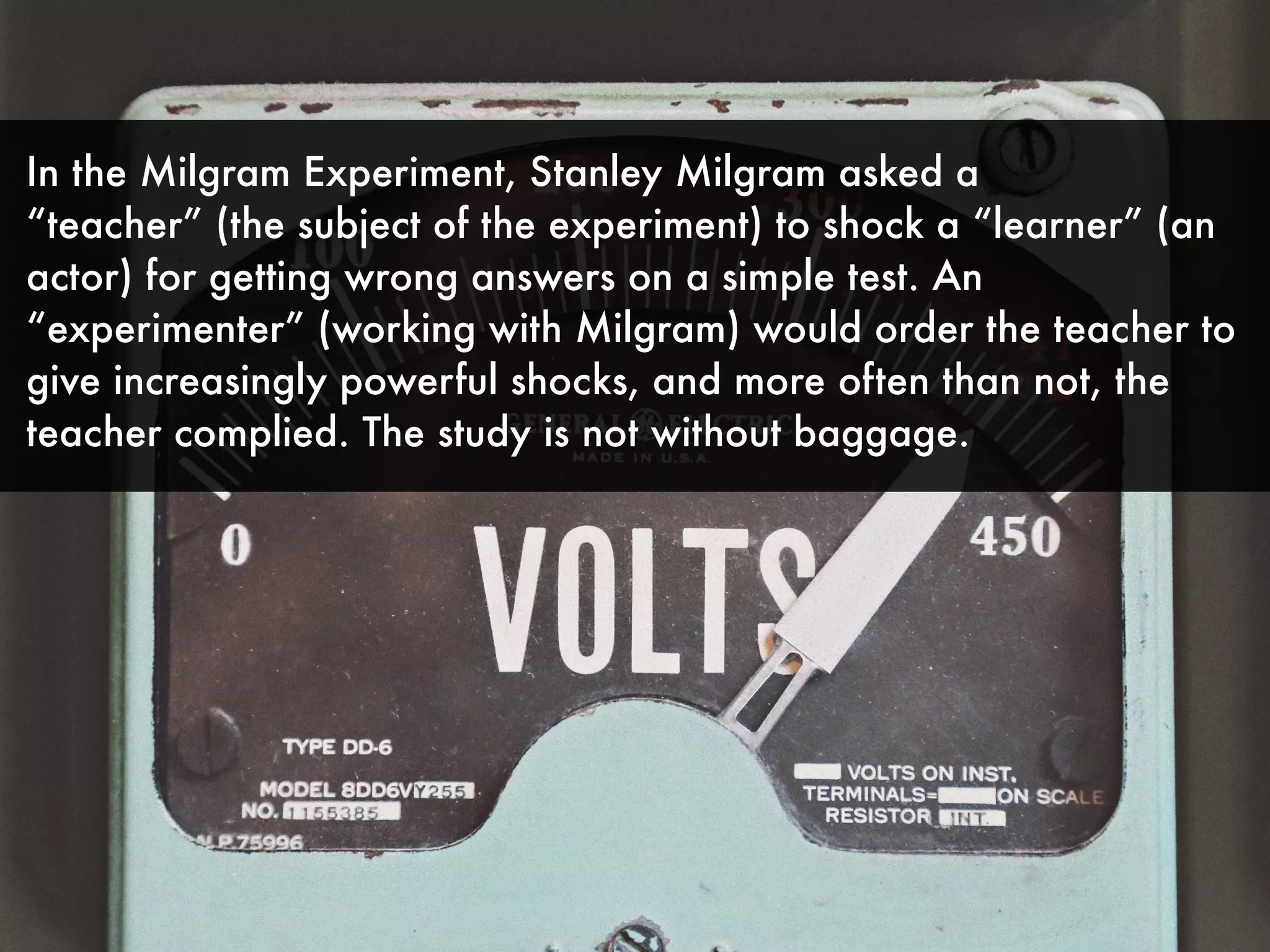
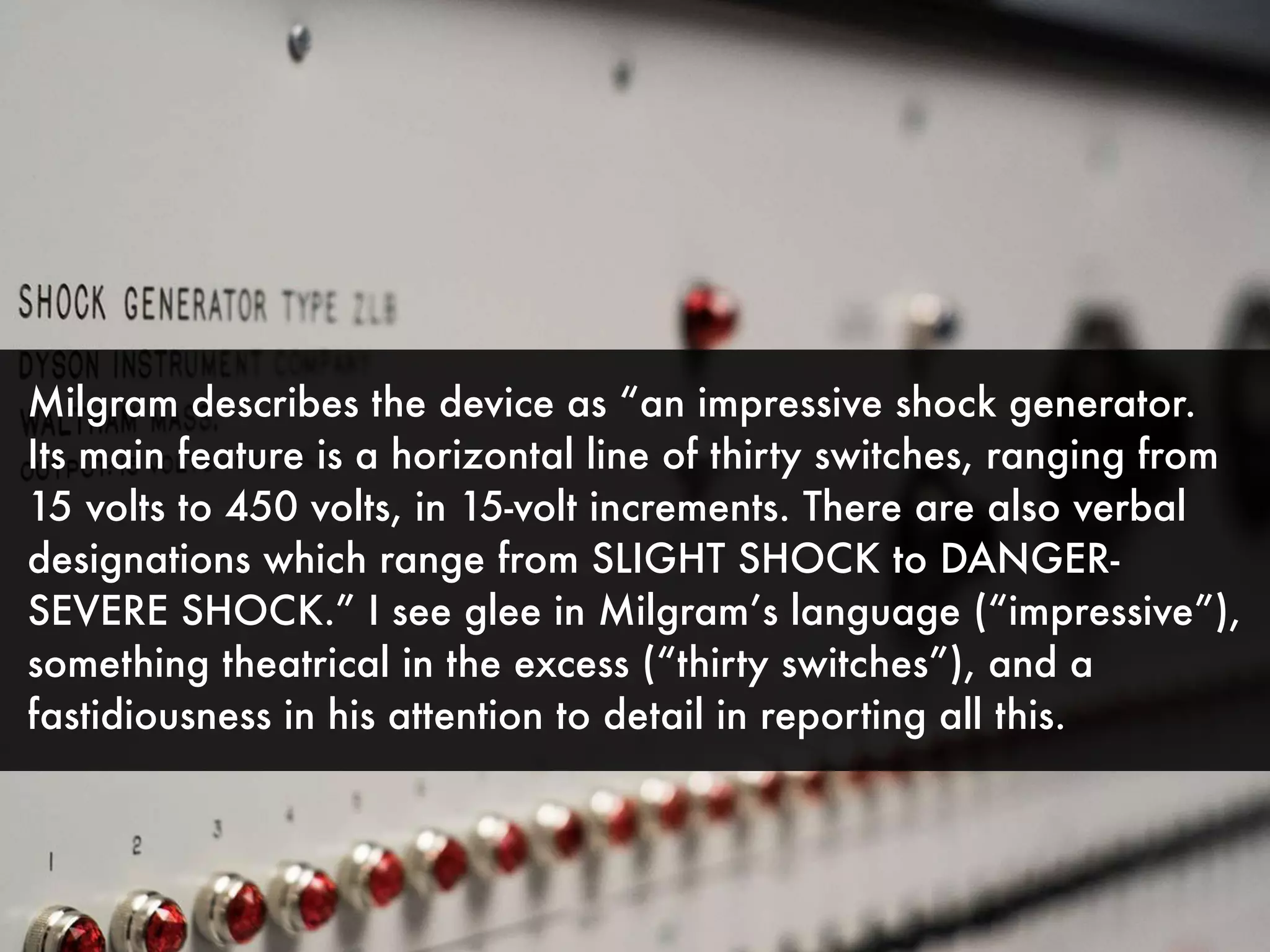
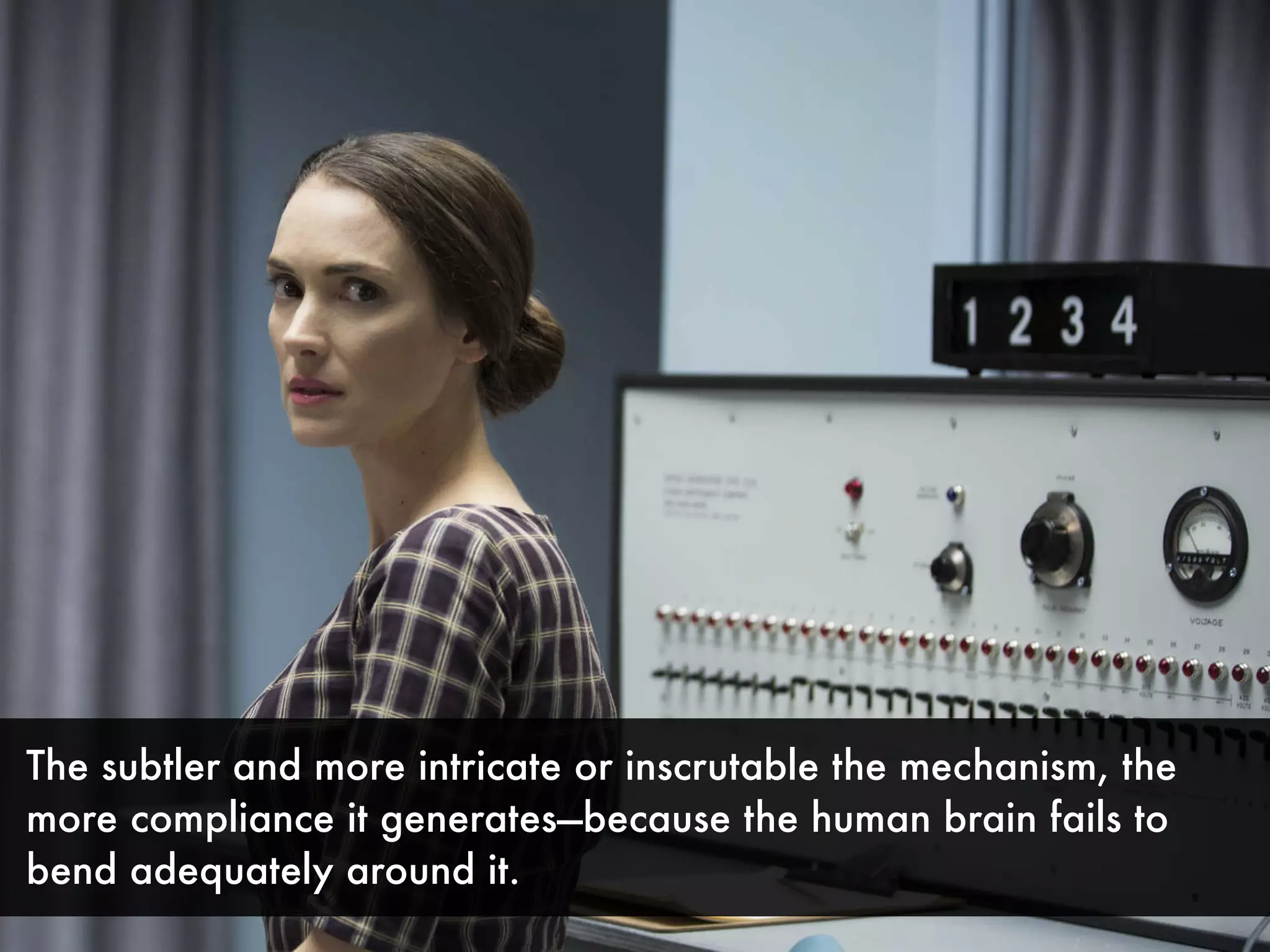
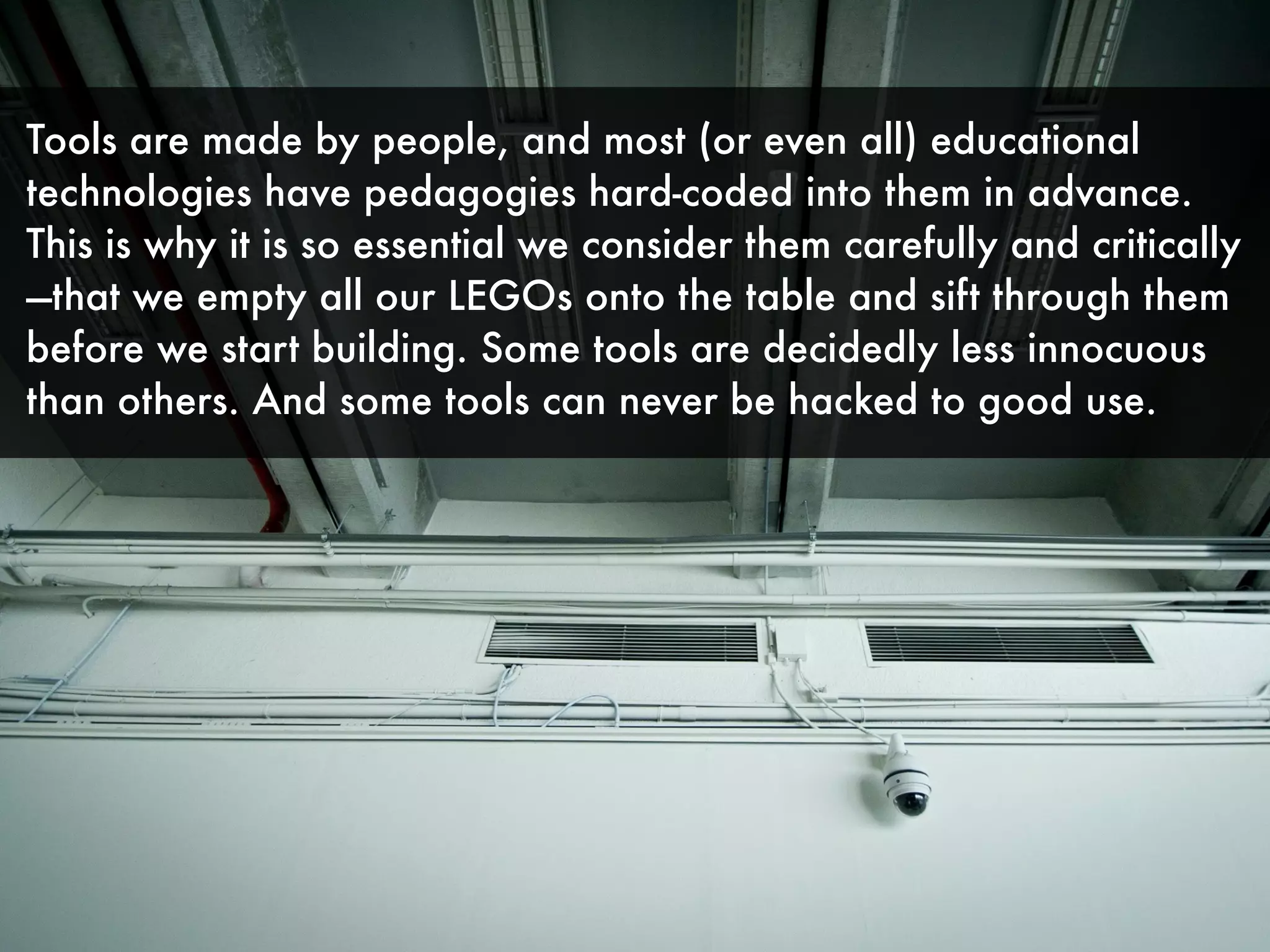





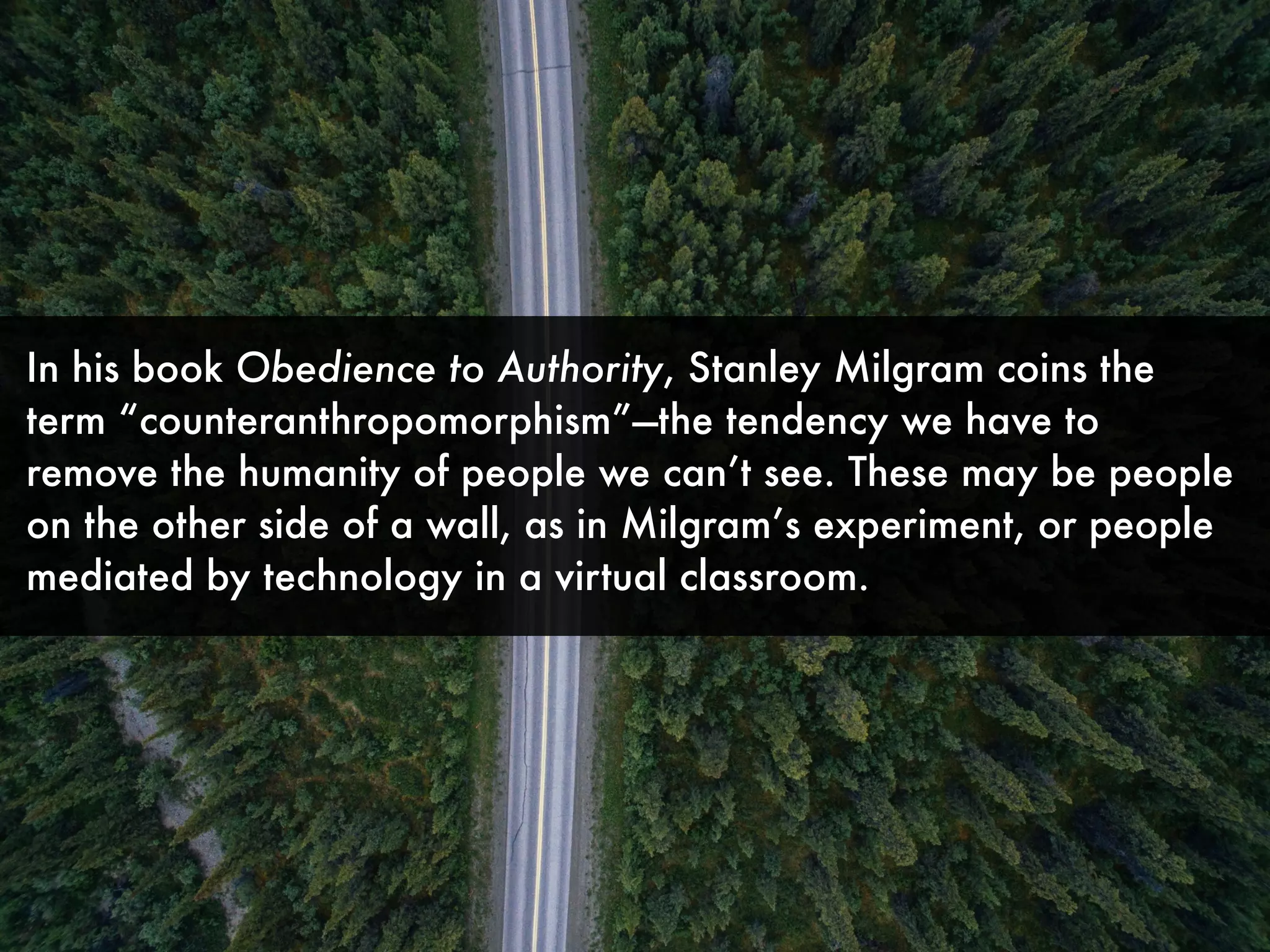

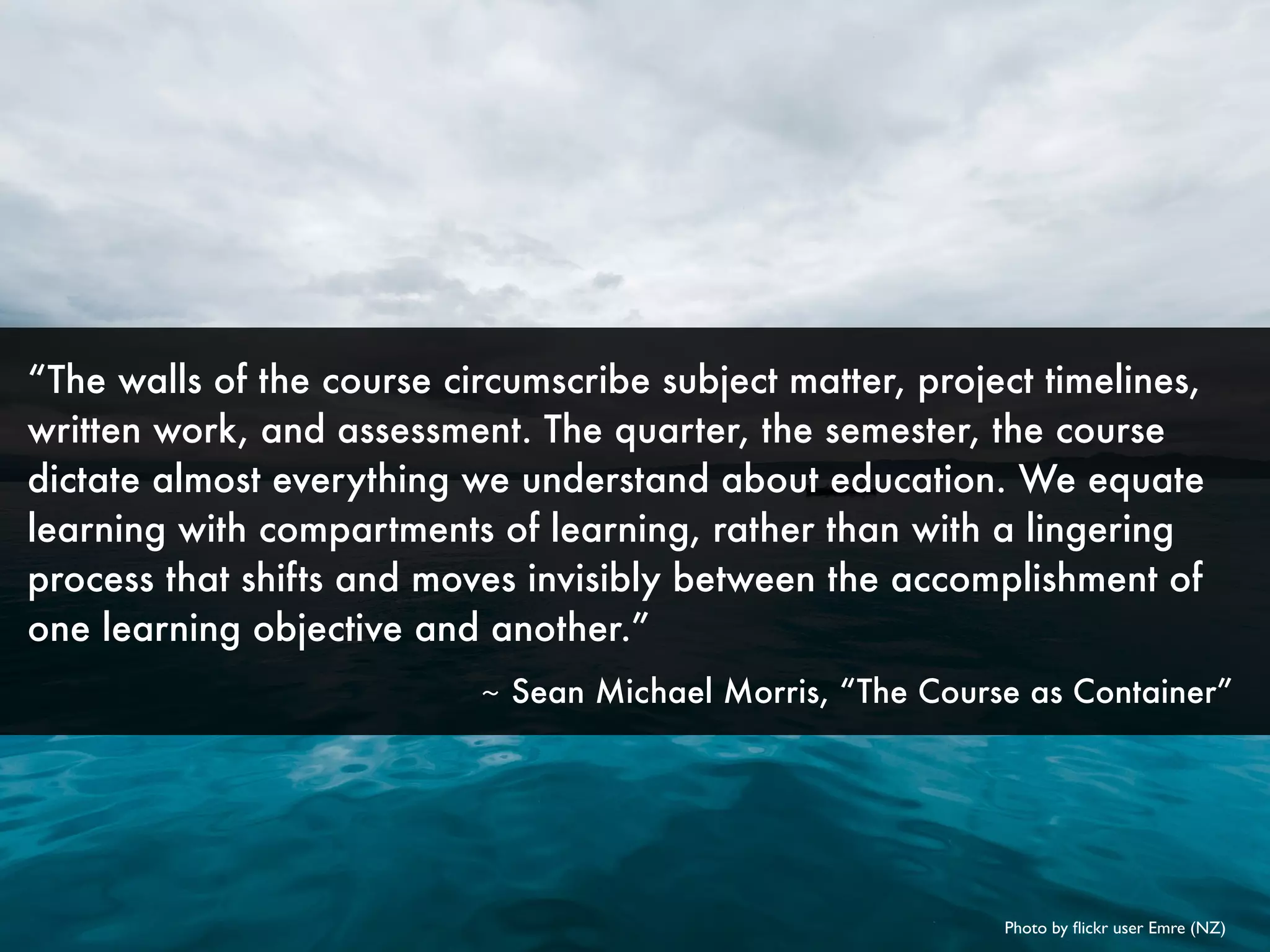









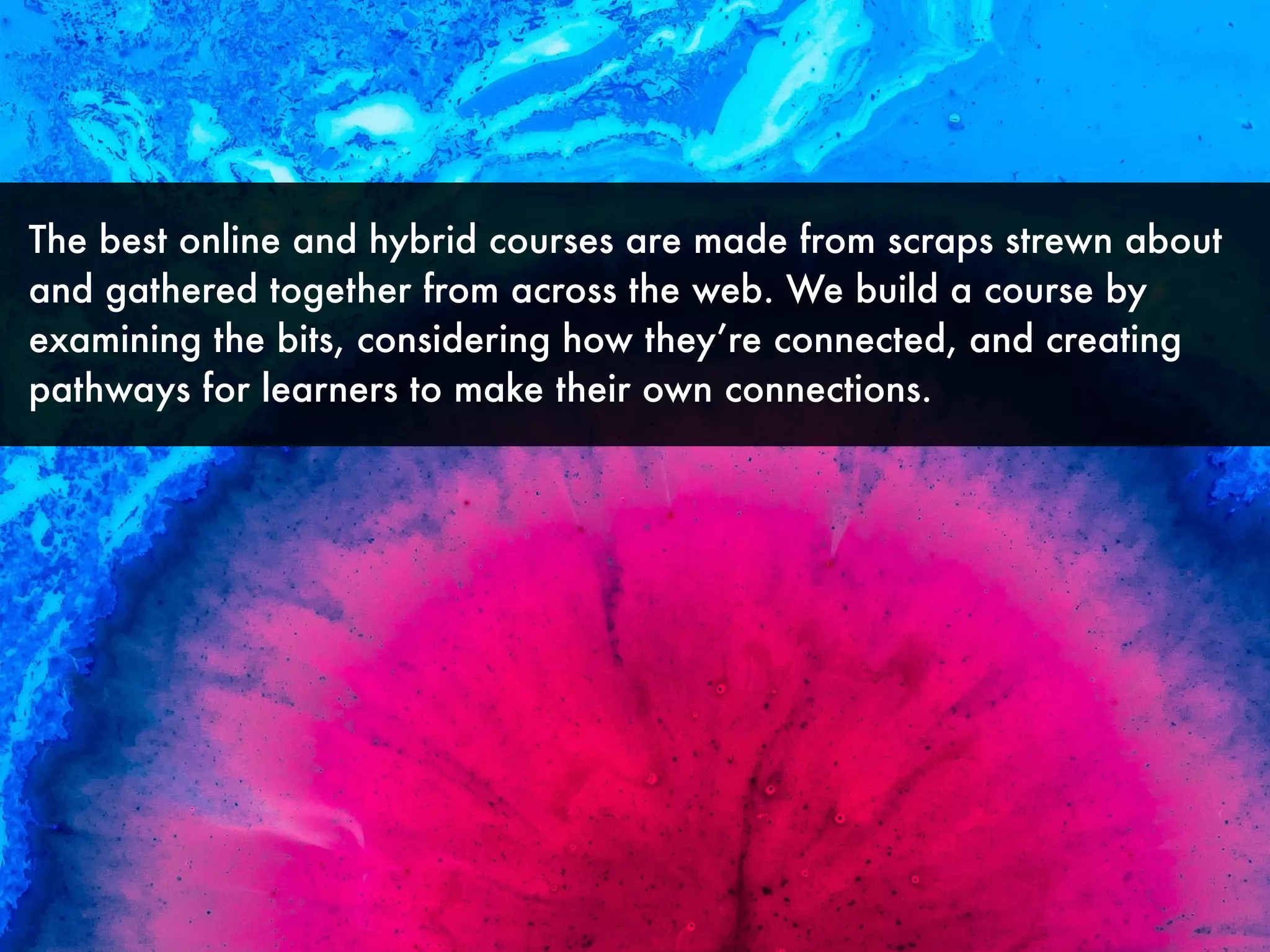



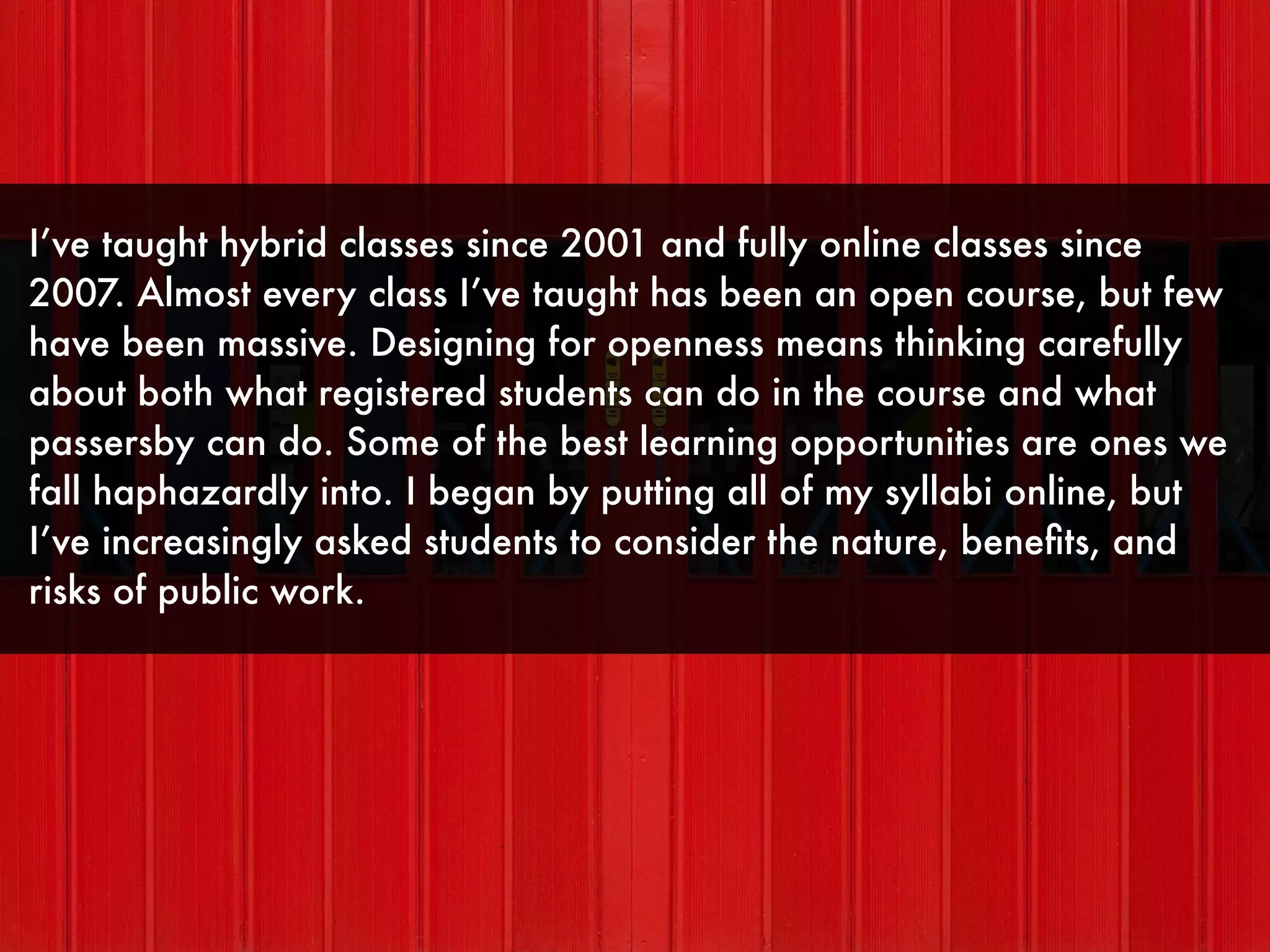

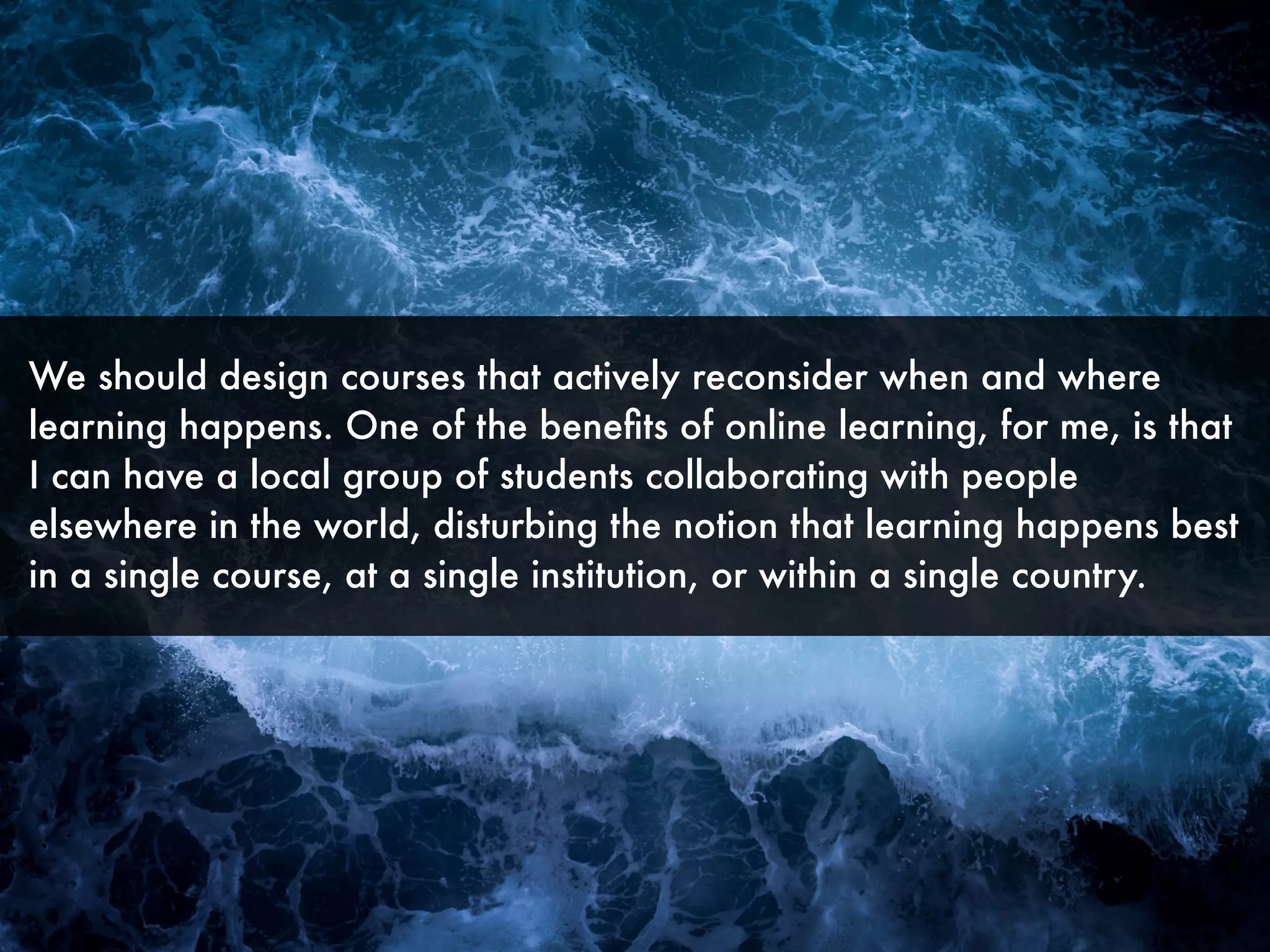
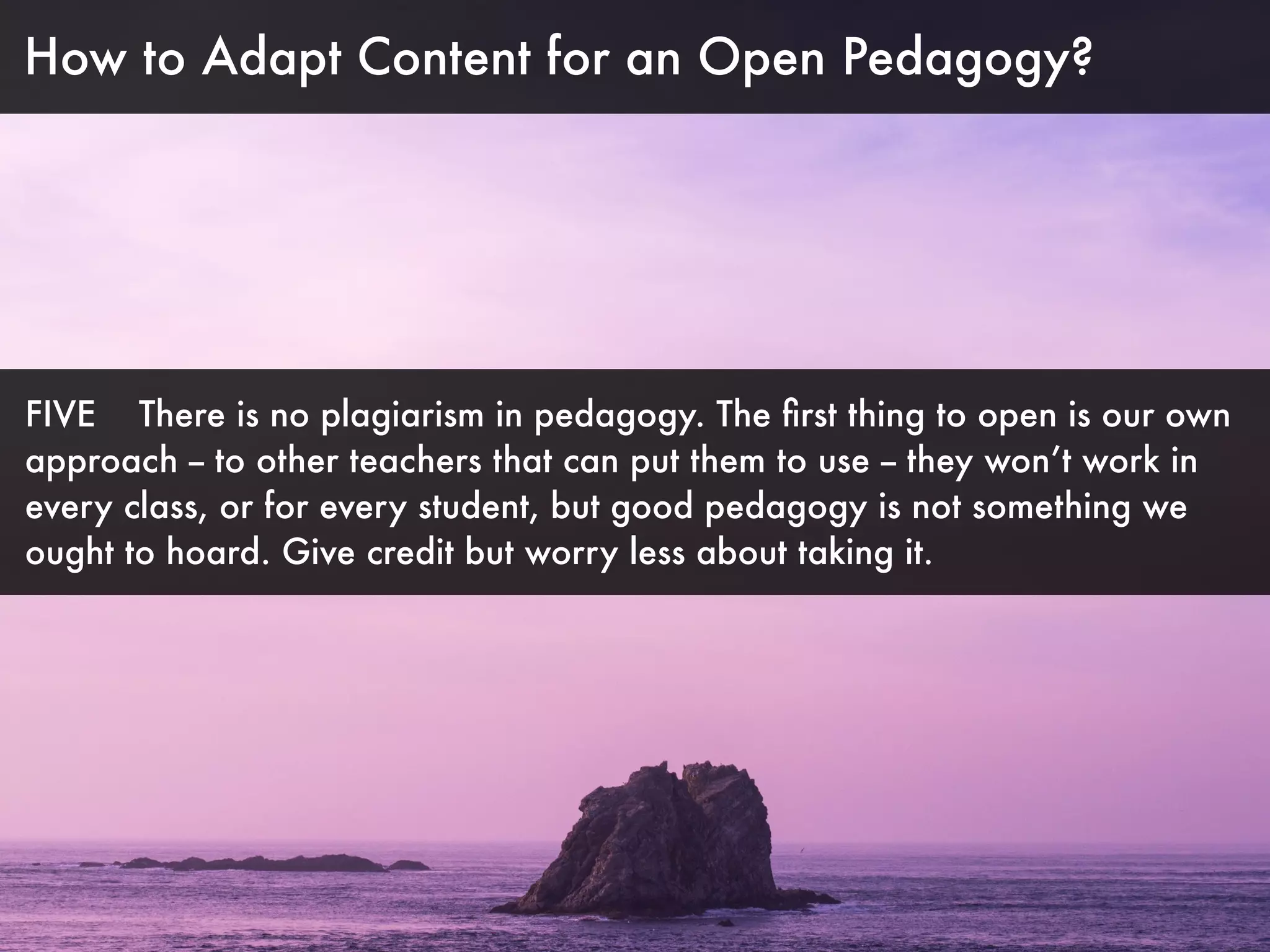




![“Grading [undermines] the climate for teaching and learning. Once we
start grading their work, students are tempted to study or work for the
grade rather than for learning.”
~ Peter Elbow](https://image.slidesharecdn.com/openpedagogy-180306153859/75/Open-Pedagogy-Building-Compassionate-Spaces-for-Online-Learning-40-2048.jpg)
